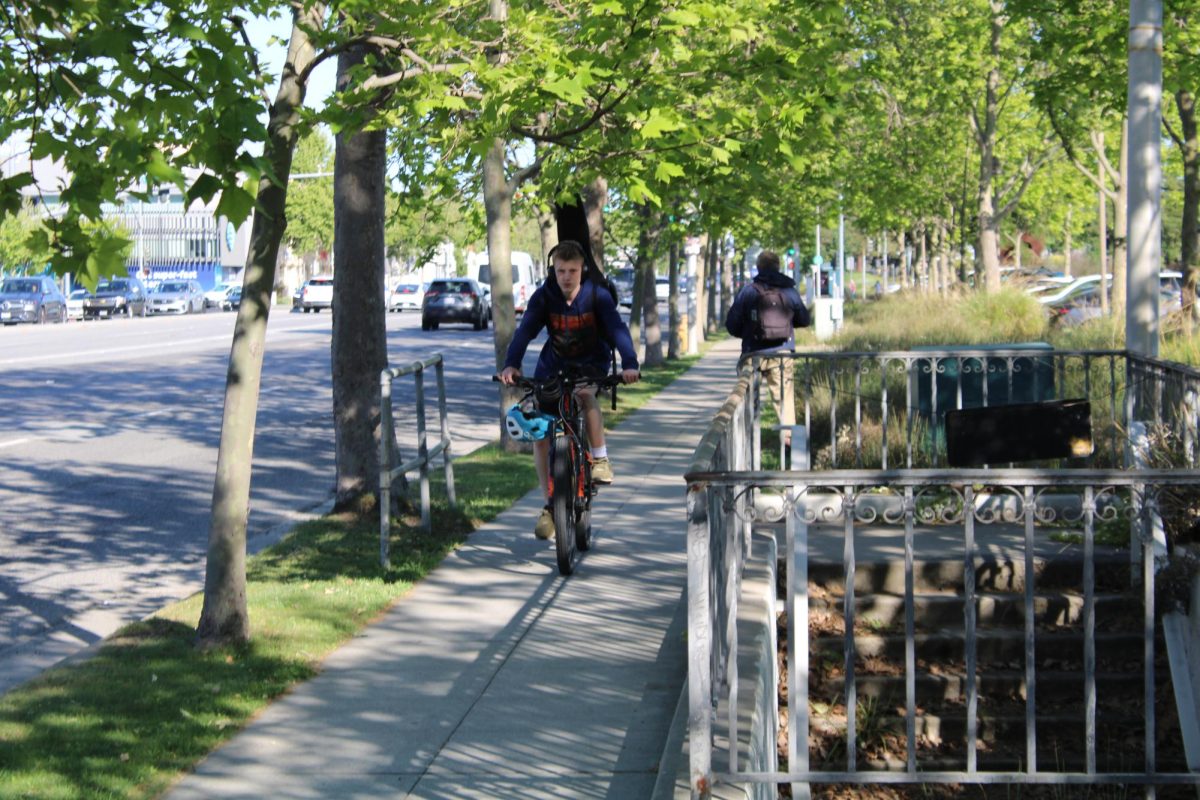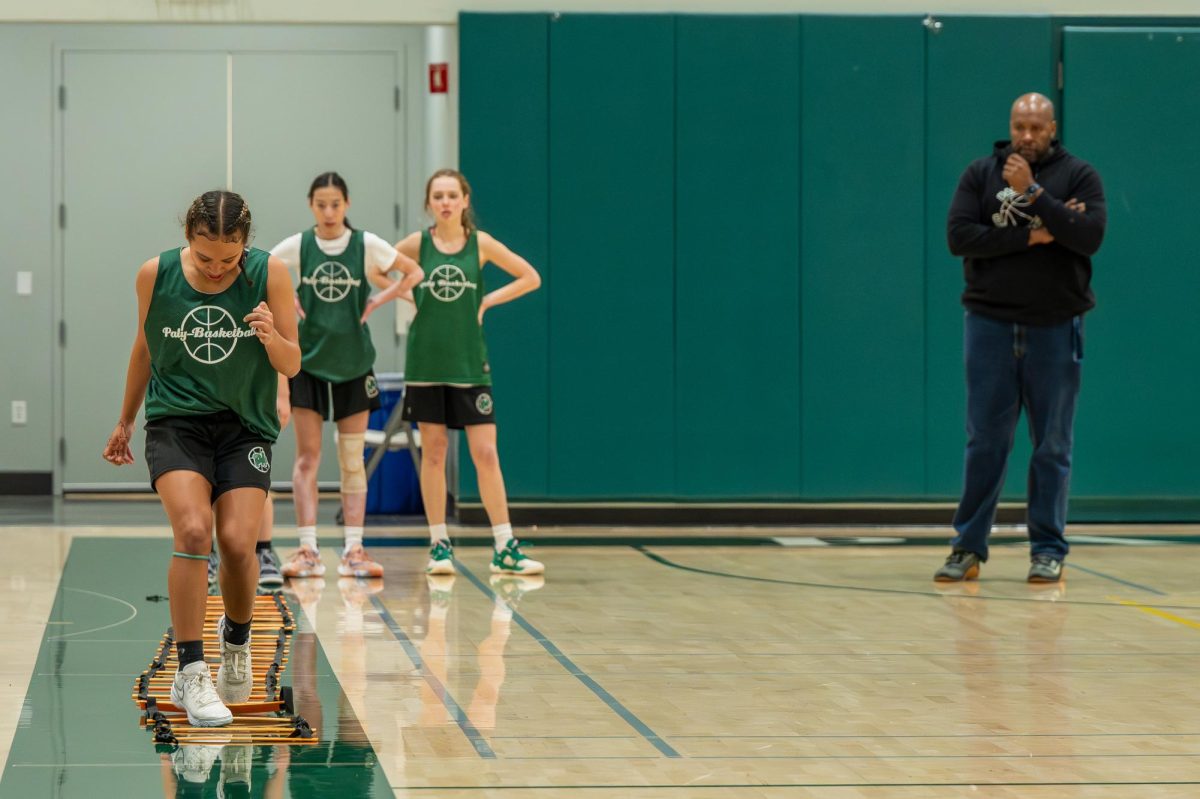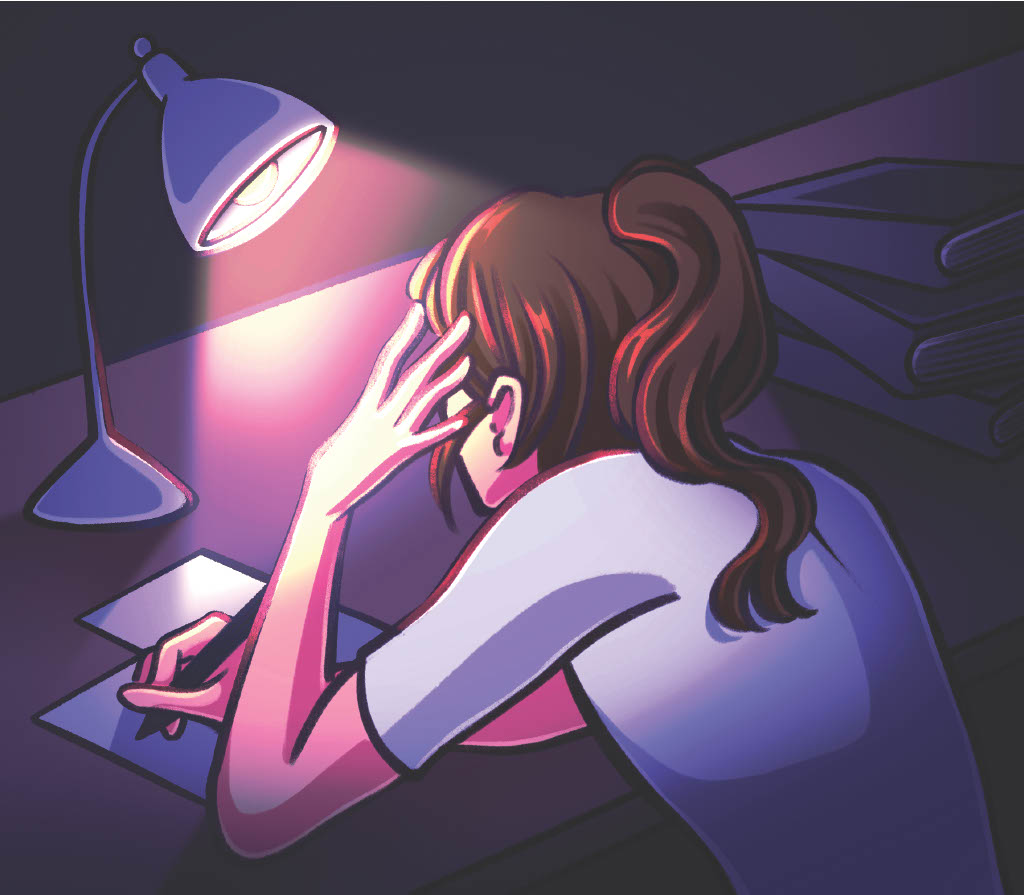Human rights advocate and non-speaking autistic DJ Savarese, the director, co-producer and inspiration for the PBS documentary “Deej,” visited Paly’s Haymarket Theater on Oct. 10 for a screening of the film.
Deej follows the journey of Savarese as an upperclassman at Grinnell High School in Iowa to his time as a student at Oberlin College. Throughout the film, he utilizes text-to-talk devices to communicate with other people and narrate his story.
“As an alternatively communicating autistic, who has been educated in mainstream classrooms for 18 years after a disparaging time in a segregated preschool setting, and as a student of cultural and linguistic anthropology and creative writing, I embody the intersections of these worlds seeming to cross back and forth across certain externally imposed borders few have had the opportunity to diverge,” Savarese said in a Q&A session following the film screening. “In this sense, I am incredibly privileged and self identify on my personal website as a poet, an activist, an optimist and a scholar.”
Although he said he struggled through his formative years on the road to inclusion in the public school system, Savarese is now a college graduate with degrees in anthropology and creative writing and is an outspoken leader in the neurodiversity movement, in which advocates promote the idea that there is non-pathological variation in the human brain and its mental functions.
Throughout his time in the US education system, Savarese said he studied with 52 teachers, 22 professors, 18 school support assistants, 15 after-school assistants, five speech therapists, core occupational therapists and six principals in two different school districts.
As a result of his positive experience in these educational environments, Savarese said he works to make literacy-based education, communication and self-determined inclusive lives a reality for all people.
“Since then, my identity as an autist has always been linked to my advocacy and activism.” Savarese said. “Inclusion should not be a lottery.”
While the film touches on a personal topic, Savarese said his choice to participate in the film was an opportunity to share his voice and to educate a widespread audience.
“Video offers a chance to show people their misperceptions,” Savarese said. “We alternatively communicating autistics are defined by misassumptions. Film allowed me to juxtapose those outsider assumptions with the truth that insiders experience. Video brings all communities together, allowing them to see collectively what they don’t know and engages people, brings them together and offers opportunities for me to engage the community more.”
Melissa Baten-Caswell, a member of the Palo Alto Board of Education who was present at the screening, said she thinks “Deej” serves as a wake-up call for the Palo Alto Unified School District — an all-inclusive education system is what PAUSD should strive for, she said.
“I think this film screening was particularly important for parents who want their child fully included, but are not sure in their hearts if full inclusion will really work,” Caswell said. “It also is important for students, teachers, staff and administrators who need an inspirational vision of what is possible. It shows the possibilities but also the hard work that is required at every level for everyone involved, including the parents.”
For audience member Angie Foster, a parent of a fifth grader at Barron Park Elementary School who uses an alternative communication device, Deej brought hope.
“I watched it carefully, with a lot of joy in my tears,” Foster said. “That a kind person who’s non-speaking can communicate and graduate from college sounds very, very touched and inspired.”
While Savarese’s success serves as an inspiration to many, it did not come without persistence and diligence. Currently, Savarese, who identifies himself as a human rights advocate, was a fellow with Open Society Foundations, a keynote speaker of the United Nations during the World of Business Awareness Day events and has published a wide array of poems, prose and literary journals.
“I live in exactly this sort of interstitial zone,” Savarese said. “Call it a neurological No Man’s Land: I’m neither fully autistic anymore, not even remotely neurotypical — I’m a neuro-cosmopolitan. I’ve travelled east from the Tokyo of unlabelled sensory impressions to the New York of categorical distinctions.”
While Savarese is a committed leader for the neuro-diversity movement, he asserts that “neurotypicals” — who are described as “not displaying or characterized by autistic or other neurologically atypical patterns of thought or behavior” — also have work to do.
“Disabled isn’t our notion of ourselves,” Savarese said. “It’s neurotypicals’ ideas of what makes someone human … The work I have to do is the work I’m currently engaged in: teaching, organizing, connecting and using artful advocacy to tries to disrupt people’s misperceptions and allow them to grow and learn. ‘What do neurotypicals have to do?’ is something I’d love (them) to answer.”








